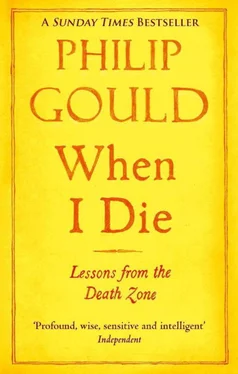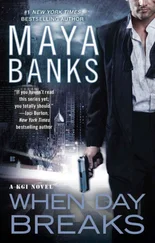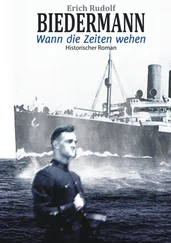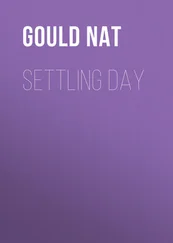Although his life was suffused with the world of British politics, particularly the Labour Party, no political affiliations are required to appreciate Philip Gould the man. He had in abundance one of life’s most underrated qualities: enthusiasm. His sense that things can be done informed everything he did, from politics to family and friends, even to Queens Park Rangers. Warm and open even towards complete strangers, he was staunch and loyal to his friends and decent and fair-minded to his opponents. It was noticeable after his death that some of the most moving tributes came from the other side of the political fence.
As he had wrestled with the terrors and trials of his illness, however, he had begun to see a public duty in this private struggle too. He wanted to inform and comfort, to combat what he saw as the ignorance and misapprehension, not to mention the fear, he had found surrounding the issue of cancer and its treatment.
An experience of death when Philip was younger had already left a powerful and lasting impression on him – he had been with his father when he died. ‘The last words I heard him say were, “That is my son and I am proud of him.” I was determined to justify that pride.’ Gould had been distressed by his father’s last hours, noticing how he had struggled to breathe, and his fear of the rattle he heard then was to come back to haunt him as his own illness reached its final stages.
Once Philip himself had entered the Death Zone he decided to explore and map this new territory. He walked around its perimeter and he marched right into its mysterious centre. This book is his last great campaign. The fact that it is written by one of the most influential political figures of the past twenty years is irrelevant. It is true that prime ministers and other giants of recent public life do occasionally flit across its pages, but they always do so as friends rather than politicians.
This is not a book about politics. It is a book about cancer and dying. It is the story of a man and his illness, his family and friends, his doctors and nurses. At its heart are his wife Gail and daughters Georgia and Grace, whom he loved above all else.
Keith Blackmore
It starts at ten o’clock on Tuesday 29 January 2008 in a private clinic in London…
I am lying on my side at the mid-point of an endoscopy, sedated but fully conscious, hearing the quiet hum of medical conversation as the endoscope gradually eases down my gullet, displaying all it sees on television screens. I prefer not to watch.
Until now all has gone well, the voices calm and subdued, but then it is as though a goal has been scored at Wembley, the room exploding with noise and energy: they have discovered a cancer, and I hear the word ‘big’. They talk as if I am not there, a bystander at my own demise.
Eventually the endoscope is removed and the doctor tells me with barely concealed excitement that they have found a growth that is certain to be a malignant tumour and that it is large. I fear the uncertainty more than the diagnosis. ‘What are my chances?’ I ask. ‘Fifty-fifty,’ he replies and I feel a combination of shock and hope. Not great, but better odds than I thought they might be. I have a chance.
Suddenly a surgeon arrives as if from nowhere. He quickly inspects the images and tells me that it is a junction cancer situated between my oesophagus and my stomach. In a second I have lost control of my world.
I am wheeled out of the operating theatre and return to my cubicle, now a cancer patient. My wife, Gail Rebuck, rushes in, her face full of love and hope, certain that I will be all right. Just an hour ago I had been told that the chances of cancer were remote and I had phoned to reassure her. It was a mistake to have done so, creating false hope.
I tell her the new truth, harshly because I am nervous, and she almost physically recoils, as though punched in the stomach. She says that it will all be fine but does not believe it. I phone my daughter Georgia who is doing some research in Manchester and she is stunned, unable to take in the information. Gail takes the phone and leaves the room to talk to her. I can hear them through the door; it is clear that they are both in floods of tears. I am not the victim here.
We drive home in silence. Gail is distant; she sees the contours of her life shifting in front of her. I feel guilty. I have let her down.
I made an immediate decision to be as open and honest as I possibly could about what had happened, reaching out to people rather than trying to do it alone. I needed help but I also had to give help. I do not consider myself someone who naturally leads, and if I do so at all it is by creating a shared spirit, pushing forward with enthusiasm and energy. But this was different, I now had an explicit responsibility to lead. I was reliant on the support of others, but they too were relying on me.
I started calling and the conversations went well. I sensed affection and it immediately lifted me. I thought, if only I had known they liked me so much before I got ill. Mostly they said one of two things: ‘You are too happy to have got cancer,’ or ‘You are so strong you are bound to get through.’ The first assumption had already been proved wrong; I hoped the second would not be.
The first call after getting home was to my younger daughter Grace, who was in Oxford. I did not want to tell her the news over the phone, so I said that we would be coming up that evening to see her. I told her that it was serious, but I wanted to speak to her face to face. This was not perfect but it was the best that I could do.
My sister, Jill, was shaken but full of kindness; she is a priest and she found the right words. Gail’s parents were beside themselves, difficult to console. Peter Jones, my closest friend from our days at the University of Sussex, was as always incurably optimistic, but I could feel his anxiety.
Alastair Campbell was stunned. His life had already been touched by cancer, and now he was seeing another of his closest friends and political colleagues fall prey to the disease. But he was, as always in a crisis, totally solid and absolutely loyal. Nothing is too much for him at a moment like this.
Afterwards he called Georgia to reassure her. She later told me that when I called she had felt complete panic, never having considered the possibility of my death or even illness. She was devastated, almost hysterical, walking aimlessly around the streets of Manchester until Alastair called her. Our children had grown up together and were as close as family, and Calum, Alastair’s younger son, who was in Manchester at university, found her and stayed with her. Together they brought her back to life.
Matthew Freud, whose company I had just joined, reassured me that whatever happened he would stand by me, a constant friend. Anji Hunter gave me an uncompromising blast of Middle England fortitude, just as she had done so many times before as Tony Blair’s ‘gatekeeper’. Peter Hyman, a Blair strategist who left Downing Street to become a teacher, reacted with all his normal compassion and integrity. In the 1997 election we had jointly created the Labour Pledges, and had become very close.
Then I called Downing Street, something I had once done often but which rarely happened now. But ‘Switch’, as the switchboard is known, remembered me and the telephonist was kind, sensing something was wrong. The next day I was due to make a presentation to Gordon Brown on public perceptions of him based on some polling that I had done. I got through to someone deep in his office and said that I would be unable to do it because I had been diagnosed with cancer. Within minutes Gordon phoned back, his deep gravelly voice betraying genuine concern. This was the first of many calls he would make. The presentation went ahead without me: the findings about him were harsh and I felt guilty for inflicting them on him.
Читать дальше












